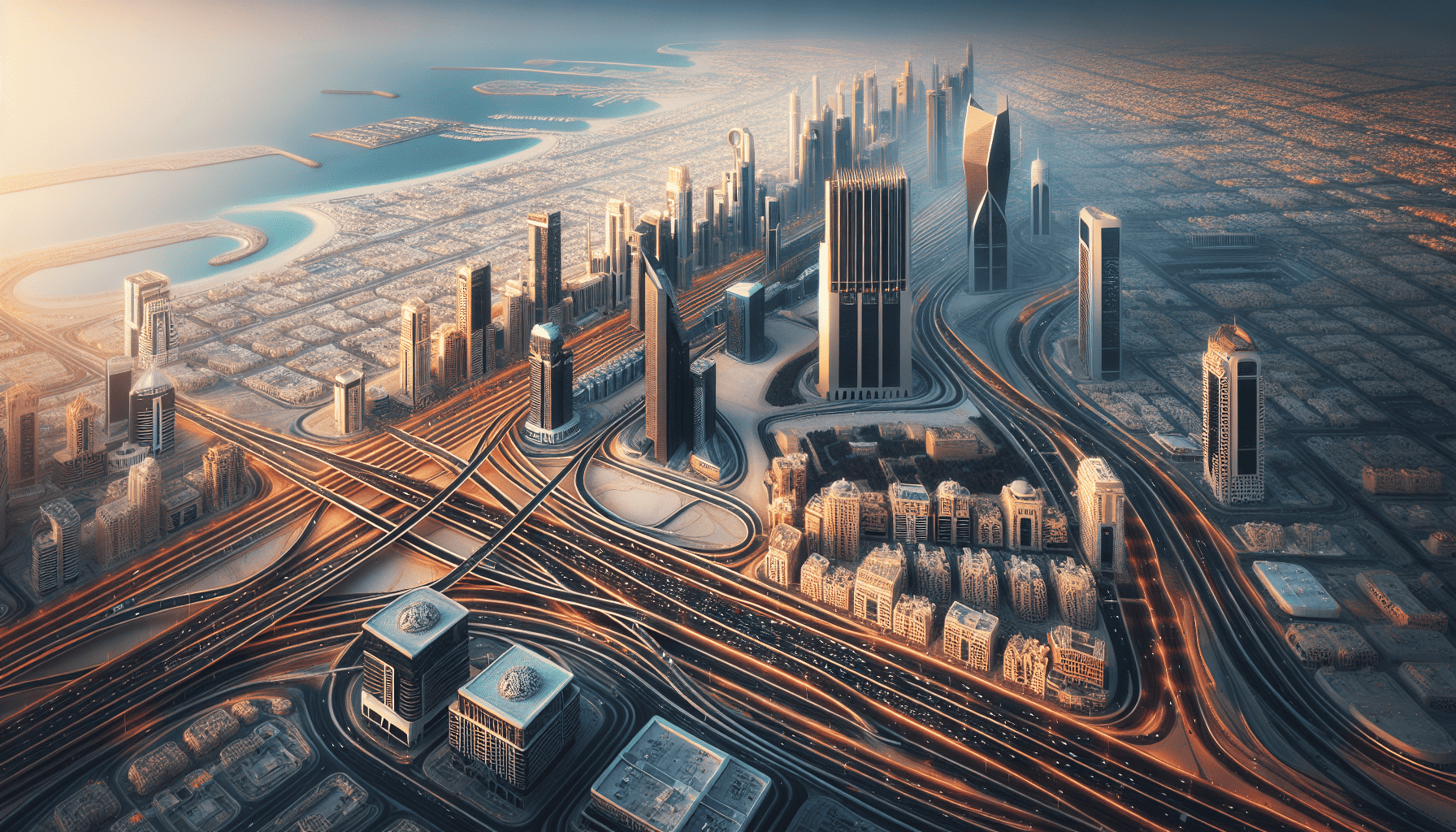The United Arab Emirates (UAE) has become a beacon of progress and development in the Middle East, showcasing a booming economy and futuristic urban landscapes. A significant portion of this success can be attributed to the strategic planning of its road and transport systems. By laying down a robust transport infrastructure, the UAE has propelled itself into becoming a pivotal global hub for trade, tourism, and business, underscoring the profound impact these developments have on its economy.
Enhancing Connectivity
One of the primary ways in which road and transport plans bolster the UAE's economy is by significantly enhancing connectivity. The network of roads, railways, and public transport systems facilitates seamless movement across the emirates. Major projects like the Etihad Rail and Dubai Metro are testimony to this vision. By enabling efficient movement of goods and people, these infrastructures have reduced transportation costs and time, resulting in higher productivity and economic efficiency.
Boosting Trade and Logistics
Situated at the crossroads of east and west, the UAE serves as a major global trade and logistics hub. The extensive road network and state-of-the-art ports like Jebel Ali enable the country to handle immense volumes of cargo. This capability attracts multinational companies to establish their distribution centers in the UAE, thus positioning it as a strategic logistics hub in the global supply chain network. The enhancements in transportation infrastructure, therefore, directly translate into increased trade volumes and foreign investment, which are crucial drivers of the economy.
Supporting Tourism and Hospitality
Tourism is a cornerstone of the UAE's economic strategy, with iconic attractions like the Burj Khalifa, Palm Jumeirah, and Louvre Abu Dhabi drawing millions of visitors each year. A well-connected road and transport network ensures easy access to these attractions, bolstering the tourism sector. Efficient public transport and taxi services contribute to a visitor-friendly environment, increasing the country’s appeal as a travel destination. The impact of this on the economy is profound, as tourism generates substantial revenue and supports numerous jobs in the hospitality sector.
Encouraging Urban Development
The UAE's ambitious urban development plans, exemplified by cities like Dubai and Abu Dhabi, rely heavily on sophisticated transport systems. These cities have been meticulously planned with future-oriented transport solutions, including smart traffic management and electric vehicle integration. This focus on urban mobility not only facilitates better living conditions but also stimulates real estate growth, creating a ripple effect through various sectors of the economy.
Sustainability and Innovation
The UAE is leading the charge in incorporating sustainability into its transport infrastructure. Projects like Masdar City and the deployment of autonomous and electric vehicles are steps toward minimizing environmental impact. By investing in green transport solutions, the UAE is setting a benchmark for innovation and sustainability, reinforcing its commitment to a diversified economy less reliant on oil. These sustainable initiatives attract green investments and technology partnerships, further boosting economic growth.
Job Creation and Employment
The expansion of the transportation sector has also led to significant job creation within the UAE. From construction jobs associated with infrastructure projects to permanent positions in operations and management, a diverse range of employment opportunities have emerged. This aligns with the broader economic goals of the UAE to increase the employment rate and improve the standard of living for its citizens.
In conclusion, the UAE's road and transport strategies are inextricably linked to its economic growth and development. By enhancing connectivity, supporting trade, boosting tourism, fostering urban development, and emphasizing sustainability and innovation, the UAE's transportation infrastructure is not merely about moving people and goods—it's about moving the economy forward. As the country continues to invest in and evolve its transport sector, it stands poised to maintain its position as a regional economic powerhouse well into the future.
